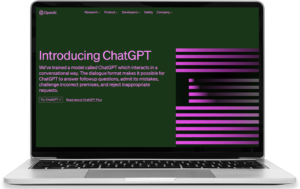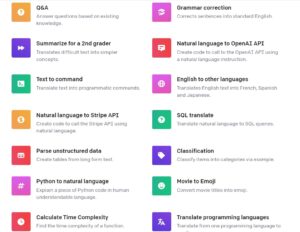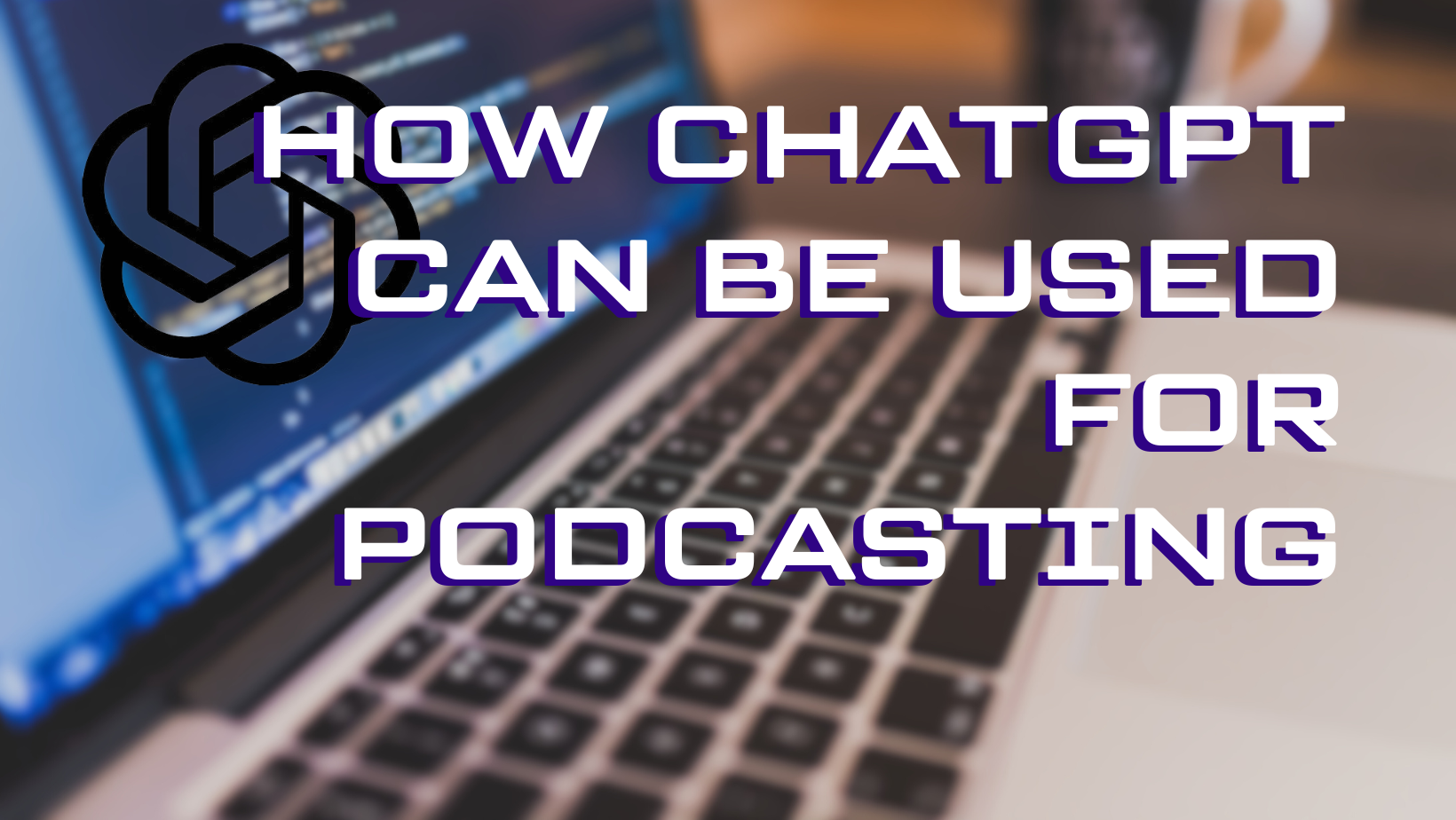The rise of AI technology has opened up new opportunities for podcasters to improve their shows and bring in unique ways to interact with their audien
The rise of AI technology has opened up new opportunities for podcasters to improve their shows and bring in unique ways to interact with their audience. The introduction of easy-to-use AI tools like ChatGPT has also sparked a lot of discussion about how this advanced technology might affect things like jobs, innovation, and more.
This article focuses on ChatGPT, how podcasters can use ChatGPT and other AI tools and its potential benefits.
What Is ChatGPT?

The idea of robots taking over the world has been a popular topic, with many articles and opinions on AI and ChatGPT. However, there is no need to worry, as robots will not take over anytime soon. Instead, advanced technology can help us save time.
AI is software that can automate tasks that were traditionally done by humans. Regarding podcasting, AI can be incredibly useful in automating mundane and time-consuming tasks.
ChatGPT is an artificial intelligence platform that provides chatbot services to its users. It is designed to respond to user queries and provide them with relevant information based on their input. The ChatGPT system uses natural language processing algorithms to understand user input and generate appropriate responses. It can be used for various purposes, including customer service, information retrieval, and entertainment.
How To Use ChatGPT To Your Podcast
Podcasts can benefit from the use of ChatGPT in various ways. It is possible to request the chatbot to generate an entire podcast script. However, the outcome of the chatbot’s work is undoubtedly impressive, but the resulting scripts seem somewhat unexciting, expected, and mechanized.
In short, they miss the crucial element of human interaction.
But ChatGPT still offers various methods to enhance your podcast.

Naming your show
As an AI language model, ChatGPT can help podcasters name their show by generating a list of potential names. This AI technology can also assist in brainstorming creative and catchy names that will grab potential listeners’ attention and reflect the podcast’s essence. Additionally, ChatGPT can help podcasters avoid naming overlaps with existing podcasts and ensure that the chosen name is unique and memorable.
Here are some ways ChatGPT can help in naming your show:
|
Brainstorming topics
ChatGPT is capable of producing fresh and captivating ideas and outlines for podcast episodes that are in line with the podcast’s main theme and objectives. Podcasters can enter their preferred subjects or fields of interest, and ChatGPT can present a range of possible episode concepts.
Here are some examples of topics for a self-help podcast:
|
Here are some examples of topics for a true-crime podcast that ChatGPT can suggest:
|

OpenAI welcome page
Interview questions
Podcast hosts often struggle to create interesting interview questions that will captivate their audience. However, ChatGPT can generate questions based on information provided about the guest. This can add variety to your podcast and make the interview more engaging for your listeners.
|
Carrying out top-level research
Although humans should conduct thorough research, ChatGPT can be a helpful tool for initial investigation.
When embarking on research for a new project, it can be beneficial to use ChatGPT to gain an overview of the subject matter by asking questions. This can save time and provide a foundation for further research.
Additionally, if you are conducting interviews, this tool can provide readily available background information on the interviewee, eliminating the need to visit multiple websites.
However, it is important to manually fact-check any information provided by ChatGPT, as it does not currently offer sources for its responses.
Draft short-form content (Show notes & Captions)
A show note is a written summary or transcript of a podcast episode that provides listeners with more information about the content discussed. It includes key points, quotes, links to resources mentioned, and any additional information that can help the listener better understand the topic discussed.
To create show notes for your podcast, it is essential to provide ChatGPT with a prompt summarizing the episode’s main points. You can either upload the transcription of your podcast or write a brief description that ChatGPT can use to generate a summary. And this summary will serve as a preliminary draft that you can modify. ChatGPT can provide you with inspiration and a basic outline to work with.
Creating SEO-optimized titles
ChatGPT is capable of producing episode titles that are both captivating and effectively depict the episode’s subject matter. For example, if a podcaster is creating an episode about “Tips for Starting a Successful Business,” they can type in that topic into ChatGPT’s chatbot and receive several possible episode titles, such as:
- “From Idea to Success: Tips for Starting Your Own Business.”
- “The Ultimate Guide to Launching Your Dream Business”
- “Starting a Business? Here are the Top Tips You Need to Know”
- “How to Start a Successful Business: Insider Tips from Industry Experts”
- “The Entrepreneur’s Toolkit: Essential Tips for Starting a Business”
Using ChatGPT, podcasters can save time and effort in creating creative and attention-grabbing episode titles. This can also attract more listeners by making their episodes easier to find and more appealing to potential listeners.

OpenAI sample applications
Language translation
If you have a podcast that caters to a worldwide audience or you wish to target a different market with your content, ChatGPT is an incredibly proficient translator. By translating your content into various languages, ChatGPT can help you expand your podcast’s reach.
For instance, you can convert episode transcriptions and publish them as blog posts to appeal to new demographics. If you aim to connect with your foreign listeners in their native tongue, ChatGPT can quickly translate your writing.
Create outro messages Or CTAs
ChatGPT has the ability to generate prompts that motivate listeners to perform certain actions, like writing a review, subscribing to the podcast, or sharing the episode on social media. By providing a clear objective for the message, ChatGPT can create a script that can be used as a guide or recorded.
How to prompt ChatGPT to create a call-to-action that is more likely to be inviting:
- Provide context: Give ChatGPT information about the topic or subject you want the call-to-action to be about. The more information you provide, the more accurate and relevant the call-to-action will be.
- Use clear language: Use simple and concise language when describing what you want the call-to-action to achieve. This will help ChatGPT understand your needs and create a clear and concise CTA.
- Provide examples: If you have specific examples of call-to-actions that you find inviting or stimulating, share them with ChatGPT. This will help guide its response and give it a better understanding of what you seek.
- Be specific: Provide details about what you want the call-to-action to achieve. This will help ChatGPT create a more targeted and compelling CTA.
 A Cautionary Note
A Cautionary Note
Artificial intelligence has significant shortcomings that must be acknowledged. It has been discovered to disseminate false and inaccurate data and exhibit racial prejudice and discrimination. AI should not be viewed as an infallible and impartial solution. Therefore, exercising prudence when experimenting with a platform like ChatGPT is crucial.
One should verify the information provided, exercise caution while formulating prompts and inquiries, and remember that the tool is not human.
Alternative To ChatGPT
Although ChatGPT is an excellent research tool, its availability to the public may be limited in the future. Hence, it would be wise to explore one of the commercially available generative tools as well.
- Copy.ai
- Writesonic
- Scalenut
- Copysmith
- INKforall
- Rytr
- Frase
- AI-Writer

ChatGpt Can Improve Podcast Content And Audience Engagement
Integrating ChatGpt into your podcast production can offer various advantages, such as producing captions and summaries, supporting scriptwriting and content development. ChatGpt’s advanced language processing and natural language generation features can help you streamline your tasks and improve the overall excellence of your podcast.
However, it is important to exercise caution when using this too frequently as it may lead to unintentional influence towards a writing style inconsistent with your brand.
You are responsible for carefully selecting the prompts you use and how you edit the generated text. Consider the output as a preliminary draft, a source of ideas, or a foundation to build upon rather than a final product.
Remember that your personal creativity and unique personality are what sets you apart as a podcast producer and are what draws listeners to your show. This is something that artificial intelligence can never replicate. As podcasters, it is essential to strive for uniqueness and avoid resorting to generic language.


COMMENTS